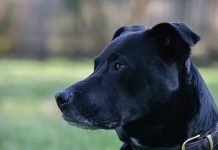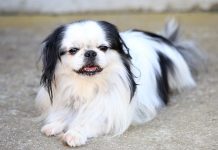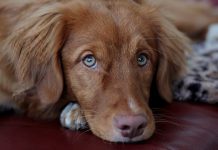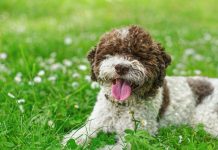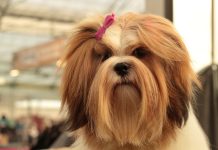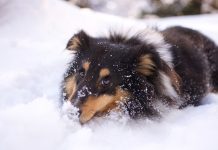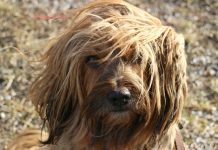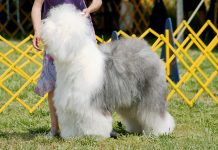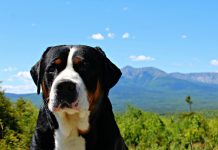History and Origins of the Cane Corso Breed

The Cane Corso is an ancient Italian breed with a rich history dating back thousands of years. Originally developed in Italy, the Cane Corso has served as a versatile working dog with roles ranging from guardian and protector to hunter and farmhand. Here’s an overview of the history and origins of the Cane Corso breed:
- Ancient Roots: The Cane Corso’s ancestry can be traced back to ancient Roman times, where it was used as a war dog and guardian of property. The breed’s name, “Cane Corso,” is derived from the Latin term “Cohors,” which means guardian or protector.
- Guardian and Protector: The Cane Corso’s primary historical role was as a guardian and protector of farms, estates, and livestock. They were valued for their strength, courage, and loyalty to their families.
- Hunting Dog: In addition to their guarding duties, Cane Corsos were skilled hunters, particularly of large game such as wild boar. Their powerful build and athletic prowess made them well-suited for tracking and holding down prey.
- Decline and Revival: Like many ancient breeds, the Cane Corso faced a decline in numbers during the early 20th century due to changes in agriculture and societal shifts. However, dedicated breed enthusiasts in Italy worked to preserve and revive the breed, leading to its resurgence in the latter half of the century.
- Recognition: The Cane Corso was officially recognized by the Italian Kennel Club in 1994 and later by the American Kennel Club (AKC) in 2010. Today, the breed is valued worldwide for its versatility, intelligence, and loyalty.
Physical Characteristics and Appearance of Cane Corsos
The Cane Corso is a large and imposing breed known for its muscular build, strong frame, and distinctive appearance. Here are the key physical characteristics and appearance traits of Cane Corsos:
- Size and Proportion:
- Cane Corsos are large, powerful dogs with a balanced and proportionate build. Adult males typically stand between 24 to 27.5 inches (61 to 70 cm) at the shoulder, while females are slightly smaller, ranging from 23.5 to 26 inches (60 to 66 cm). Weight ranges from 90 to 120 pounds (41 to 54 kg) for males and 80 to 110 pounds (36 to 50 kg) for females.
- Muscular Build:
- Cane Corsos have a robust and muscular physique, reflecting their heritage as working dogs. They have a deep chest, broad shoulders, and strong, well-developed limbs.
- Head and Expression:
- The head of a Cane Corso is large and imposing, with a distinctive square shape. The muzzle is broad and deep, and the ears are medium-sized, set high, and naturally drop forward. The breed’s expression is alert, intelligent, and attentive.
- Coat and Color:
- Cane Corsos have a short, dense coat that lies close to the body. The coat is stiff and glossy, providing protection from the elements. Accepted coat colors include black, fawn, red, gray, and brindle, with or without a black or gray mask.
- Tail:
- The tail of a Cane Corso is traditionally docked to a medium length, although docking practices are now regulated or banned in some regions. The natural tail is thick at the base and tapers to a point, carried straight or slightly curved.
- Gait and Movement:
- Cane Corsos move with a powerful and fluid gait, covering ground effortlessly. Their movement is balanced, coordinated, and purposeful, reflecting their athleticism and agility.
- Expression and Temperament:
- Despite their imposing appearance, Cane Corsos are known for their calm, confident, and even-tempered demeanor. They are affectionate and loyal towards their families, with a strong protective instinct.
Cane Corsos require early socialization, consistent training, and responsible ownership to thrive as companions. Their intelligence, loyalty, and natural guarding instincts make them excellent family guardians and working dogs when properly trained and socialized.
Cane Corso Temperament and Personality Traits
The Cane Corso is known for its balanced temperament, intelligence, and protective nature. This ancient Italian breed exhibits several distinct personality traits that make it a loyal and capable companion. Understanding the Cane Corso’s temperament is essential for providing appropriate training and socialization. Here are the key temperament and personality traits of Cane Corsos:
- Loyal and Devoted:
- Cane Corsos are fiercely loyal and devoted to their families. They form strong bonds with their owners and are highly protective of their loved ones.
- Alert and Watchful:
- As natural guardians, Cane Corsos are alert and watchful. They are quick to detect changes in their environment and will alert their owners to potential threats.
- Intelligent and Trainable:
- Cane Corsos are intelligent dogs with a strong desire to please their owners. They respond well to consistent, positive training methods and enjoy learning new commands and tasks.
- Confident and Assertive:
- Cane Corsos possess confidence and self-assurance. They are not typically timid or shy and will approach new situations with a calm and composed demeanor.
- Gentle and Affectionate:
- Despite their imposing appearance, Cane Corsos are gentle and affectionate with their families. They enjoy spending time with their owners and crave physical affection.
- Protective Instincts:
- Cane Corsos have a natural instinct to protect their families and territory. They are wary of strangers and will act decisively to defend their home if they perceive a threat.
- Stable and Calm:
- Well-bred Cane Corsos exhibit stability and a calm disposition. They are not prone to excessive barking or nervous behavior, making them reliable companions.
- Moderate Energy Level:
- Cane Corsos have a moderate energy level and enjoy daily exercise. They appreciate regular walks, play sessions, and mental stimulation to keep them engaged and content.
- Socialization Needs:
- Early and ongoing socialization is crucial for Cane Corsos to develop good manners and positive interactions with people and other animals. Expose them to various environments, sounds, sights, and experiences from a young age.
- Watchdog Abilities:
- Cane Corsos excel as watchdogs due to their alertness and protective instincts. They will alert their owners to strangers or unusual activities with a deep bark.
Training and Socialization Needs for Cane Corsos
To ensure a well-rounded and well-behaved Cane Corso, it’s essential to provide appropriate training and socialization starting from puppyhood. Here are important considerations for training and socializing Cane Corsos:
- Early Socialization:
- Begin socializing your Cane Corso puppy early to expose them to various people, animals, environments, and situations. Positive experiences during puppyhood help prevent fearfulness and aggression in adulthood.
- Basic Obedience Training:
- Establish consistent rules and boundaries through basic obedience training. Use positive reinforcement techniques such as treats, praise, and toys to reward desired behaviors.
- Leash Training:
- Teach your Cane Corso proper leash manners to ensure control during walks. Start leash training early and use positive reinforcement to encourage loose-leash walking.
- Consistent Leadership:
- Cane Corsos respond well to confident and consistent leadership. Be firm but fair in your interactions and establish yourself as the pack leader through positive reinforcement training.
- Positive Reinforcement:
- Use positive reinforcement methods to motivate and reward your Cane Corso for good behavior. Avoid harsh or punitive training techniques, as they can undermine trust and cause fearfulness.
- Exposure to Stimuli:
- Expose your Cane Corso to various stimuli, including different sounds, sights, textures, and experiences. This helps build confidence and reduces the likelihood of fear-based behaviors.
- Early Intervention:
- Address any behavioral issues or concerns promptly with professional guidance. Early intervention can prevent undesirable behaviors from becoming ingrained habits.
- Regular Exercise:
- Provide daily physical exercise and mental stimulation to keep your Cane Corso engaged and content. Interactive play sessions, obedience training, and puzzle toys are excellent ways to channel their energy.
- Supervised Interactions:
- Supervise interactions with children and other pets to ensure positive and respectful behavior. Teach children how to interact gently and respectfully with the Cane Corso.
By investing time and effort into training and socialization, you can help your Cane Corso develop into a well-mannered, confident, and loyal companion. Consistent leadership, positive reinforcement, and ongoing guidance are key to nurturing the best qualities of this remarkable breed.
Health Considerations and Common Issues in Cane Corsos
Cane Corsos are generally a healthy breed with a lifespan of around 9 to 12 years. However, like all breeds, they may be prone to certain genetic or health-related issues. Being aware of these potential concerns can help you provide the best care for your Cane Corso. Here are common health considerations and issues in Cane Corsos:
- Hip Dysplasia:
- Hip dysplasia is a common orthopedic condition in Cane Corsos and many large breeds. It occurs when the hip joint doesn’t develop properly, leading to arthritis and mobility issues. Responsible breeding and maintaining a healthy weight can help reduce the risk of hip dysplasia.
- Elbow Dysplasia:
- Elbow dysplasia is another orthopedic condition that affects the elbow joint. It can cause pain, lameness, and joint dysfunction. Regular vet check-ups and early intervention can help manage elbow dysplasia.
- Bloat (Gastric Dilatation-Volvulus):
- Cane Corsos, like other deep-chested breeds, are susceptible to bloat, a life-threatening condition where the stomach fills with gas and twists. Feeding multiple smaller meals throughout the day and avoiding vigorous exercise after meals can help reduce the risk of bloat.
- Heart Conditions:
- Cane Corsos may be prone to certain heart conditions, including dilated cardiomyopathy (DCM). Regular cardiac screenings and early detection are essential for managing heart-related issues.
- Eyelid Abnormalities:
- Cane Corsos may develop eyelid abnormalities such as entropion (inward rolling of the eyelids) or ectropion (outward sagging of the eyelids), which can cause irritation and discomfort. Surgical correction may be necessary in severe cases.
- Skin Allergies:
- Some Cane Corsos may experience skin allergies, resulting in itching, redness, and irritation. Allergies can be triggered by environmental factors, food sensitivities, or flea bites. Regular grooming and veterinary care are important for managing skin issues.
- Cancer:
- Like many large breeds, Cane Corsos have a higher risk of developing certain types of cancer, such as mast cell tumors and osteosarcoma (bone cancer). Early detection and prompt veterinary care are crucial for cancer treatment.
- Obesity:
- Cane Corsos can be prone to obesity if not properly managed. Maintaining a balanced diet, providing regular exercise, and monitoring food intake are important for preventing obesity and associated health problems.
- Hypothyroidism:
- Hypothyroidism, a deficiency of thyroid hormone production, can occur in Cane Corsos and may lead to weight gain, lethargy, and skin issues. Thyroid hormone replacement therapy is typically used to manage hypothyroidism.
Living with a Cane Corso: Suitable Environments and Lifestyle Considerations

Cane Corsos are large, powerful dogs with specific needs and requirements. Providing a suitable environment and lifestyle for a Cane Corso is essential for their well-being and happiness. Here are considerations for living with a Cane Corso:
- Space and Exercise:
- Cane Corsos require ample space to move around and regular exercise to stay healthy and mentally stimulated. A fenced yard or secure outdoor area is ideal for play and exercise.
- Socialization and Training:
- Early socialization and consistent training are crucial for Cane Corsos to develop good manners and positive behaviors. Expose them to various environments, people, and animals from a young age.
- Regular Veterinary Care:
- Schedule routine veterinary check-ups, vaccinations, and preventive care to monitor your Cane Corso’s health and detect any potential issues early. Follow your vet’s recommendations for heartworm prevention and parasite control.
- Balanced Diet:
- Feed a high-quality, balanced diet suitable for large breeds to maintain optimal health and prevent obesity. Avoid overfeeding and monitor your Cane Corso’s weight and body condition.
- Grooming and Coat Care:
- Cane Corsos have short coats that require minimal grooming. Regular brushing helps remove loose hair and keeps the coat healthy. Pay attention to skin health and address any allergies or skin issues promptly.
- Safety and Security:
- Provide a safe and secure environment for your Cane Corso, especially when outdoors. Supervise interactions with children and other pets to prevent accidents or conflicts.
- Attention and Affection:
- Cane Corsos thrive on companionship and attention from their families. Spend quality time with your Cane Corso, providing physical affection, mental stimulation, and opportunities for bonding.
- Responsible Ownership:
- As a large and powerful breed, responsible ownership is essential when living with a Cane Corso. Provide proper training, socialization, and supervision to ensure they are well-behaved and well-adjusted companions.
By understanding the specific health considerations and lifestyle needs of Cane Corsos, you can create a nurturing and supportive environment for your beloved companion. With proper care, attention, and responsible ownership, Cane Corsos can be loving, loyal, and cherished family members.
Cane Corso Variations and Breeding Practices
The Cane Corso breed has a standard set by kennel clubs and breed organizations that outline specific characteristics and traits. Responsible breeders adhere to these standards when selecting breeding pairs to maintain the integrity of the breed. While there may not be significant variations within the Cane Corso breed, there are considerations regarding breeding practices and goals. Here’s an overview of Cane Corso breeding practices and considerations:
Breeding Practices for Cane Corsos:
- Breed Standard Adherence:
- Responsible breeders prioritize adherence to the Cane Corso breed standard set by kennel clubs like the American Kennel Club (AKC) or the Fédération Cynologique Internationale (FCI). The standard specifies the ideal appearance, temperament, and structure of the breed.
- Health Testing and Screening:
- Reputable breeders conduct health testing and screening for genetic conditions prevalent in Cane Corsos. This may include hip and elbow evaluations, cardiac screenings, and tests for inherited disorders like hyperuricosuria and progressive retinal atrophy (PRA).
- Temperament Assessment:
- Breeders assess the temperament and behavior of breeding dogs to ensure they exhibit the desired traits of the breed, such as stability, confidence, and loyalty. Temperament testing helps identify suitable breeding candidates.
- Genetic Diversity:
- Maintaining genetic diversity is essential to prevent the spread of inherited health issues within the Cane Corso breed. Responsible breeders carefully select breeding pairs to minimize the risk of passing on genetic disorders and promote overall breed health.
- Ethical Standards:
- Reputable breeders follow ethical breeding practices, including proper care of breeding dogs, transparency about health testing and lineage, and providing support to puppy buyers. They prioritize the welfare of the dogs and advocate for responsible ownership.
- Breeding Goals:
- The primary goal of responsible breeding is to preserve and improve the Cane Corso breed, maintaining the unique qualities and characteristics outlined in the breed standard. This includes selecting for health, temperament, conformation, and working ability.
Considerations for Cane Corso Variations:
While Cane Corsos are bred to conform to a specific breed standard, variations in appearance and temperament may exist due to individual genetics and breeding practices. Some considerations regarding variations include:
- Color and Markings:
- Cane Corsos come in various coat colors, including black, fawn, red, brindle, and gray. The distribution and intensity of markings, such as white patches on the chest or toes, may vary among individuals.
- Size and Build:
- While there is a standard size range for Cane Corsos, individual dogs may vary slightly in height and weight. Breeders may selectively breed for specific body proportions and muscular build within the standard guidelines.
- Temperament Traits:
- While Cane Corsos are known for their confident and loyal temperament, variations in personality traits can occur. Some individuals may exhibit slightly different temperaments based on genetics and early socialization.
- Working Ability:
- Cane Corsos have a history as versatile working dogs, and variations in working ability may be influenced by breeding goals. Some Cane Corsos may excel in specific roles such as protection work, tracking, or obedience.
Overall, responsible breeding practices focus on preserving the integrity of the Cane Corso breed while minimizing health risks and promoting desirable traits. When acquiring a Cane Corso puppy, it’s important to research and choose a reputable breeder who follows ethical standards and prioritizes the health and well-being of the dogs. This ensures that you’ll welcome a healthy, well-adjusted Cane Corso into your family, ready to become a loyal companion and representative of this magnificent breed.
50 Best Names with Meanings for Cani Corsi
Naming your Cane Corso is an exciting part of welcoming them into your family. Here’s a list of 50 unique and meaningful names with their meanings that might suit your Cane Corso’s personality and presence:
Male Names:
- Bruno – Means “brown” in Italian.
- Leo – Short for “Leonardo,” meaning “brave lion.”
- Enzo – Means “ruler of the home” in Italian.
- Hugo – Means “intelligence” or “mind.”
- Rocco – Means “rest” or “calm” in Italian.
- Maximus – Latin for “greatest” or “largest.”
- Gino – Means “well-born” or “noble.”
- Dante – Refers to the famous Italian poet Dante Alighieri.
- Luca – Italian form of “Luke,” meaning “light.”
- Spartacus – Inspired by the legendary Roman gladiator.
- Cyrus – Persian name meaning “sun” or “throne.”
- Marco – Means “warlike” or “male” in Latin.
- Orso – Italian for “bear.”
- Vito – Means “life” or “alive.”
- Matteo – Italian form of “Matthew,” meaning “gift of God.”
- Giovanni – Italian form of “John,” meaning “God is gracious.”
- Roman – Refers to the ancient city of Rome.
- Axel – Means “father of peace.”
- Titus – Latin name meaning “title of honor.”
- Brunello – Italian wine, also a cute name for a brown Cane Corso.
Female Names:
- Luna – Means “moon” in Italian, symbolizing brightness.
- Stella – Italian for “star,” representing brightness and uniqueness.
- Bella – Means “beautiful” in Italian.
- Aria – Italian for “air” or “melody.”
- Cara – Means “beloved” or “dear.”
- Giada – Italian name meaning “jade,” a precious stone.
- Mia – Means “mine” or “my own.”
- Lola – Represents grace and femininity.
- Gia – Short for “Gianna,” meaning “God is gracious.”
- Alessia – Italian name meaning “defender of mankind.”
- Sofia – Italian form of “Sophia,” meaning “wisdom.”
- Lara – Means “cheerful” or “light-hearted.”
- Aurora – Italian for “dawn,” symbolizing new beginnings.
- Lucia – Means “light” or “illumination.”
- Nina – Italian name meaning “little girl.”
- Vita – Means “life” in Italian.
- Grazia – Italian for “grace” or “elegance.”
- Gemma – Italian name meaning “gem” or “jewel.”
- Mila – Short form of “Camila,” meaning “perfect” or “gracious.”
- Lara – Means “fortress” or “protection.”
Gender-neutral names:
- Rio – Means “river” in Italian.
- Coco – Refers to cocoa or coconut, symbolizing sweetness.
- Rocco – Suitable for both male and female Cane Corsos.
- Nico – Short for “Nicola,” meaning “victory of the people.”
- Sasha – Means “defender of mankind.”
- Dakota – Native American name meaning “friend” or “ally.”
- Cleo – Short for “Cleopatra,” meaning “glory of the father.”
- Sunny – Symbolizes brightness and happiness.
- Remy – Means “oarsman” or “remedy.”
- Blaze – Refers to a streak of fire or lightning.
Choose a name that resonates with your Cane Corso’s personality, appearance, or the qualities you admire. Whether you prefer a classic, meaningful, or unique name, the right name will be a perfect fit for your beloved Cane Corso companion.

In conclusion, this comprehensive guide to Cane Corso dogs has provided a detailed overview of this powerful and loyal breed. Throughout our exploration, we’ve delved into the history, distinctive characteristics, and essential care considerations that define Cane Corsos. Known for their imposing appearance, intelligence, and protective nature, Cane Corsos make devoted companions and guardians for experienced dog owners. They require consistent training, socialization, and exercise to thrive as well-rounded pets. As you embark on your journey with a Cane Corso, may you appreciate their unique qualities and form a strong bond with this impressive breed, creating lasting companionship and fulfillment together.







